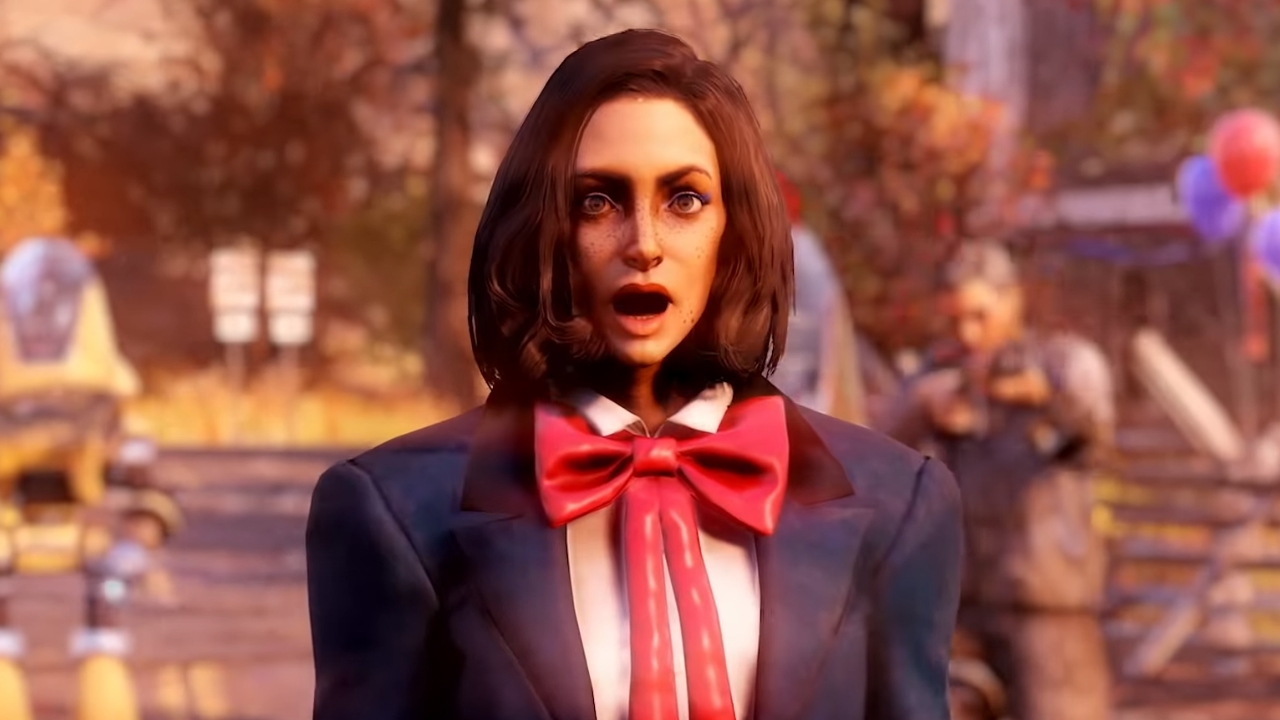Bethesda defends Fallout 76's paid-for repair kits: "It's simply just a strict convenience thing"
Bethesda discusses all things Fallout 76, including its most controversial items

In the nearly seven months since Fallout 76 first launched, it's seen plenty of highs and lows, from early days riddled with game-breaking bugs, to recent windfalls of free content like the Wild Appalachia update and other stops on the Fallout 76 roadmap. But probably the single most discussed addition since launch is the paid-for repair kit sold in the Atomic Shop, which previously only offered cosmetic items. And despite all the backlash from players, Bethesda stands by the repair kits as "definitely not pay-to-win."
PC Gamer recently spoke with Bethesda project lead Jeff Gardiner and development director Chris Mayer for an in-depth interview about all things Fallout 76, and the topic of the repair kits inevitably came up. If you're not familiar, repair kits are bought with Atoms (which can be earned for hitting certain in-game milestones or purchased with real money), and will repair any item to maximum durability no matter where you are in the world. They were the first Fallout 76 microtransactions that aren't purely cosmetic, which led some players to believe that Bethesda had broken its promise of a game where money can't buy a tactical advantage.
"We believed the repair kits were a convenience item for people who didn't want to grind for adhesive and other things, and it was just a way for them to basically shortcut game systems, definitely not pay-to-win," said Gardiner. "I will argue [with] anybody that [repair kits] makes you win at the game. First of all, you're not really competing with one another, except for in PvP mode. We have all the information, how often people repair, what they repair, and again, you can repair in the game, it's simply just a strict convenience thing. That's my take on repair kits."
Of course, Bethesda continues to monitor player feedback, and has made plenty of quality-of-life changes since launch - like expanding stash sizes for wasteland explorers who felt like their pockets were filling up far too quickly. When asked why the stash was so limiting at first, Gardiner explained that "we wanted people to have to make decisions about what they're carrying in this game. But over time we realized that we were too draconian so we increased it, and we increased it again. We probably could even increase it [further]... but again, we do want there to be some light survival elements where you have to make decisions on what you're carrying in your inventory."
Bethesda played coy when asked about the possible addition of a Creation Club like the ones in Skyrim and Fallout 4, which act as a storefront for officially sanctioned player-made mods. "We're very well aware our modding community is part of [making the game vibrant]," said Gardiner. "That's all I'll say. For now. But we're well aware of how important that is for both the modders and the community, and us. So, we would be ill-advised to ignore that."
Gardiner added that the Fallout 76 playerbase numbers are "very healthy," and that Bethesda is excited to bring Fallout 76 to Steam on PC, saying "we decided to try our own platform to launch it, and now we want Steam users to access it too." Unfortunately, there wasn't any discussion on the 10% player trading tax that has some players in a tiff, and we're still waiting for new info on the incoming Nuclear Winter update following Wild Appalachia this summer.
If nothing else, it seems like Bethesda is always listening to player feedback regarding its games, and acknowledges the instances where design decisions didn't pan out; recently, Todd Howard admitted that criticism of Fallout 76 was "well deserved." We'll surely see what's in store for Fallout 76 during the Bethesda E3 2019 showing in the E3 2019 schedule, which kicks off at 17:30 PT / 20:30 ET this coming Sunday, June 9.
Weekly digests, tales from the communities you love, and more
Check out the latest Fallout 76 patch notes, or see what's happening this week in games and entertainment with our latest Release Radar:
Lucas Sullivan is the former US Managing Editor of GamesRadar+. Lucas spent seven years working for GR, starting as an Associate Editor in 2012 before climbing the ranks. He left us in 2019 to pursue a career path on the other side of the fence, joining 2K Games as a Global Content Manager. Lucas doesn't get to write about games like Borderlands and Mafia anymore, but he does get to help make and market them.



